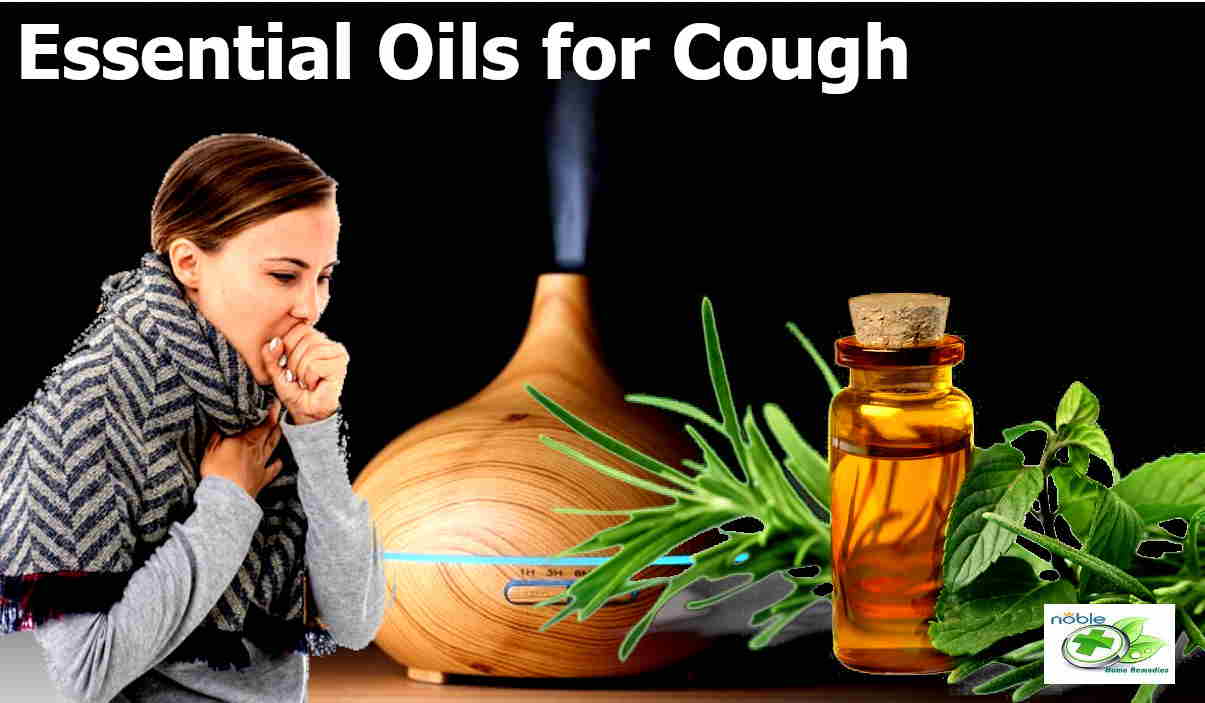Coughing is a common and often irritating symptom that can strike at any time. Whether it’s a persistent, nagging cough or a sudden fit of uncontrollable hacking, we’ve all experienced the discomfort it brings. From allergies and infections to environmental irritants and even a simple tickle in the throat, coughing can be triggered by a multitude of factors.

In our quest for a peaceful night’s sleep, a productive day at work, or just a moment of respite from the incessant hacking, one thing becomes crystal clear: finding a way to stop coughing fast is of paramount importance.
In this article, we will explore coughing, its common causes, and, most importantly, how you can gain fast relief from this pesky ailment. We’ll go through the proven tips and remedies that can help you regain control over your coughing fits and find the relief you deserve.
So, whether you’re battling a stubborn cough or looking for ways to prevent one from taking hold, read on. Our 10 Tips on How to Stop Coughing Fast will guide you to silence the cough and reclaim your peace.
Table of Contents
Understanding Coughing

Before we get to the strategies for fast cough relief, it’s essential to understand what coughing is and why it occurs.
Coughing is a natural reflex action of the body’s respiratory system, and it serves the crucial purpose of clearing the airways of irritants, mucus, or foreign substances that might be causing irritation or blockage.
Causes of Cough
Coughing can be triggered by various factors, and it’s the body’s way of responding to these irritations. Some of the common causes of coughing include:
- Infections: Viral or bacterial infections like the common cold, flu, bronchitis, or pneumonia often lead to coughing as the body attempts to expel the invading pathogens.
- Allergies: Allergic reactions to pollen, dust, pet dander, or certain foods can cause the airways to become inflamed, resulting in a cough.
- Environmental Irritants: Exposure to smoke, pollution, strong odors, or chemicals can irritate the throat and trigger coughing.
- Postnasal Drip: When excess mucus from the nasal passages drips down the back of the throat, it can cause irritation and coughing.
- Asthma: People with asthma may experience coughing as a symptom of their condition, often accompanied by wheezing and shortness of breath.
- Gastroesophageal Reflux Disease (GERD): In some cases, stomach acid can flow back into the esophagus, leading to a type of cough known as acid reflux cough.
Types of Coughs
Coughing comes in different forms, each with its own characteristics. Understanding the type of cough you’re dealing with can help in choosing the right remedies. Here are some common types:
- Dry Cough: A dry, non-productive cough doesn’t produce mucus. It can be caused by throat irritation, allergies, or viral infections.
- Wet or Productive Cough: This cough is characterized by the production of mucus or phlegm. It’s often associated with respiratory infections like bronchitis or pneumonia.
- Persistent Cough: When a cough lingers for an extended period, usually more than three weeks, it’s considered persistent. Underlying health issues may be the cause.
- Paroxysmal Cough: Paroxysmal or uncontrollable coughing involves sudden and intense coughing fits, often seen in conditions like whooping cough.
- Nighttime Cough: Coughing that worsens at night can disrupt sleep and may be due to postnasal drip or GERD.
- Croup cough: Croup cough is a condition that primarily affects children under the age of 5. It’s triggered by the same viruses responsible for the common cold, which cause inflammation in the airways. How to stop croup coughing is covered in detail in a separate article.
Understanding the type of cough you have can help tailor your approach to finding fast relief. Whether it’s a dry, persistent cough or a wet cough accompanied by mucus, the tips we’ll explore in this article can be adapted to suit your specific needs.
10 Tips to Stop Coughing Fast
1. Stay Hydrated
One of the simplest yet most effective ways to tackle that nagging cough and work towards our goal of stopping coughing fast is by staying properly hydrated. You might be wondering, what does drinking water have to do with soothing a cough? Well, let’s get into the details.
The throat is a sensitive and delicate part of our respiratory system. When it becomes dry and irritated, it can trigger coughing as a protective mechanism. Dehydration can exacerbate this dryness, making the throat even more prone to irritation and coughing fits.
By drinking enough fluids, you’re essentially keeping your throat moist and preventing it from becoming an easy target for cough-inducing irritants. So, don’t underestimate the power of a glass of water in providing relief to your irritated throat.
Avoid dehydrating beverages. Limit or avoid beverages like caffeine and alcohol, which can contribute to dehydration and worsen your cough.
2. Use Honey and Lemon or Bourbon
When it comes to finding fast relief from a persistent cough, nature often provides some of the most effective remedies. Two such natural powerhouses are honey and lemon. You also can use bourbon with honey. Let’s explore how these ingredients can work wonders to stop coughing fast.
2. 1 Honey and Lemon for Cough

Honey for cough relief is a time-tested remedy. Honey also works well with sore throats. It boasts natural antibacterial and antimicrobial properties that can help combat infections that may be causing your cough. Additionally, honey’s thick and sticky consistency creates a protective barrier on the irritated throat, providing immediate relief from that scratchy feeling that prompts coughing.
Lemon is a rich source of vitamin C, which can boost your immune system and help fight off the underlying causes of your cough, such as infections or allergies. The acidity of lemon can also help break up mucus and phlegm in the throat, making it easier to expel. Furthermore, the refreshing citrus flavor of lemon can mask the unpleasant taste that often accompanies a persistent cough.
To harness the soothing benefits of honey and lemon, consider these simple remedies:
- Honey-Lemon Tea: Brew a cup of hot water and add a teaspoon of honey and a squeeze of fresh lemon juice. Sip on this warm concoction to soothe your throat and ease coughing.
- Honey-Lemon Cough Syrup: Mix equal parts of honey and lemon juice to create your own all-natural cough syrup. Take a spoonful as needed to relieve coughing and throat irritation.
- Honey-Lemon Drops: If you prefer a more portable option, consider making honey-lemon cough drops. Combine honey, lemon juice, and a bit of grated lemon zest. Drop small portions onto parchment paper and let them harden. These can be a handy on-the-go remedy.
- Honey-Lemon Steam Inhalation: Boil water and pour it into a bowl. Add a spoonful of honey and squeeze in some lemon juice. Lean over the bowl, cover your head with a towel, and inhale the steam. This can help soothe your airways and reduce coughing.
2.2 Honey and Bourbon Syrup for Cough
This goes without saying the best cough medicine for adults. Because of making cough syrup with whiskey. Adults may love it.

Here the main ingredient is, of course, the honey to cure a cough. Bourbon is added to make it stronger, taste good, and enjoy the drink. Once you take this drink nothing can stop you from having a good sound sleep. This is only for adults and should not be tried on children.
Here is the recipe for honey bourbon cough syrup:
Honey – 2 teaspoons
Bourbon whiskey – 2 ounces
fresh lemon juice – 2 ounces (1/2 lemon)
Water – 4 ounces
Mix nicely and heat bourbon whiskey, lemon juice, and water in a cup. You could heat the mix in a micro oven or on a stovetop using a small saucepan. Heat it just for 45 seconds. Now add honey to it. Again. heat the mixture for another 45 seconds.
Let it cool down a little to the level of lukewarm temperature and drink the homemade cough syrup. Drink this cough syrup just before bedtime. You will get relief from a cough and a sound sleep overnight.
3. Try Steam Inhalation
One of the best remedies that can offer quick relief from coughing is steam inhalation. This natural therapy has been used for generations to ease congestion and soothe coughing fits, and its effectiveness lies in its simplicity.
When you’re dealing with a dry, scratchy throat and persistent cough, introducing moisture into the air can work wonders. Inhaling steam adds moisture to your airways, providing immediate relief to the irritation that triggers coughing.
Steam inhalation can help break down and thin out thick mucus that often accompanies respiratory infections. When mucus becomes thinner, it’s easier for your body to expel it, reducing the urge to cough. Also. inhaling warm steam helps relax the muscles in your airways, making it easier to breathe and reducing coughing spasms.
Performing steam inhalation is straightforward and can be done in the comfort of your own home. Here’s a step-by-step guide:
- Boil a pot of water and let it cool slightly to avoid scalding. Pour the hot water into a large bowl or basin.
- Lean over the bowl, positioning your face about 10 to 12 inches above the water. Create a steam tent by draping a towel over your head and the bowl, trapping the steam.
- Close your eyes and inhale the warm, moist air through your nose. Breathe in slowly and deeply, allowing the steam to penetrate your airways. Continue for 5-10 minutes, or until you feel relief.
- Be cautious not to get too close to the hot water to avoid burns. If it feels too hot or uncomfortable, back away slightly.
- You can perform steam inhalation multiple times a day as needed until your cough subsides.
For added benefits, you can add a few drops of eucalyptus or menthol essential oil to the hot water. These oils can further help alleviate congestion and provide a soothing effect.
4. Gargle with Salt Water
When you find yourself caught in the throes of a persistent cough, one of the oldest and most reliable home remedies is salt water gargling. It’s a simple yet highly effective method that can play a significant role in your quest to stop coughing fast.
Salt has natural anti-inflammatory properties. When you gargle with a saltwater solution, it can help reduce the swelling and inflammation in your throat, providing immediate relief from that scratchy, ticklish feeling that often triggers coughing.
Further, salt water works as a hypertonic solution, meaning it has a higher salt concentration than the cells in your throat tissues. This draws out excess fluid from the cells, effectively reducing swelling and irritation.
If your cough is accompanied by mucus or phlegm, gargling with salt water can help loosen and thin it out. This makes it easier for your body to clear the mucus from your throat and airways, reducing the urge to cough.
How to Gargle with Salt Water:
- Dissolve about half a teaspoon of salt in a glass of warm water. Make sure the water is warm but not scalding.
- Take a small sip of the saltwater solution, tilt your head back slightly, and gargle it in the back of your throat. Make sure not to swallow the mixture. The goal is to coat your throat with it.
- Continue to gargle and swish the solution around your throat for about 15-30 seconds.
- After gargling, spit out the saltwater solution. Don’t swallow it, as it may contain irritants and debris that you want to remove from your throat.
- You can repeat this process several times a day, especially when your throat feels particularly irritated or when you’re experiencing coughing fits.
5. Use Cough Drops or Lozenges
Why cough drops are a quick relief option? Cough drops and lozenges are designed to address coughing in several ways:
- Cough drops are formulated with ingredients that can help soothe an irritated throat. Common ingredients include menthol, honey, eucalyptus, and lemon, all of which have natural soothing properties.
- Many cough drops contain ingredients that add moisture to your throat, countering the dryness that often leads to coughing.
- Some cough drops also contain cough suppressants, such as dextromethorphan, which can help reduce the frequency and intensity of coughing.
- The pleasant flavors of cough drops can mask the urge to cough, offering a temporary distraction from irritation.
Cough drops or lozenges can be a valuable addition to your cough relief toolkit. They help stop coughing fast by relieving irritation.
6. Avoid Irritants
This is more of protecting yourself from one of the common cough triggers. The irritants can make an already irritated throat even worse, fueling those persistent coughing fits.
Here are some practical steps you can take to minimize your exposure to these common irritants:
- If you smoke, consider quitting.
- Steer clear of places whereof smoking.
- Stay informed about air quality levels in your area, especially if you have respiratory issues. Limit outdoor activities on days with poor air quality.
- Ensure proper ventilation in your home. Proper ventilation can help remove indoor pollutants.
- Implement allergen-reduction measures in your home, such as using air purifiers with HEPA filters.
Avoiding irritants is a proactive step you can take to prevent coughing triggers.
7. Rest and Sleep
We often focus on external remedies and treatments to stop coughing fast. However, one of the most underrated yet crucial aspects of recovery is rest and sleep. Rest and sleep, especially deal well with a persistent cough.
- When you rest, your body can divert its energy and resources toward healing and repair. This is especially important when you’re fighting off infections or dealing with the underlying causes of your cough.
- A good night’s sleep and ample rest help reduce stress levels, which can significantly affect the severity and duration of your cough. High-stress levels can weaken the immune system and exacerbate coughing.
- Sleep is when your immune system is most active. It produces and releases cytokines, proteins that regulate inflammation and immune responses. Adequate sleep supports your immune system in combating infections and illnesses.
- Resting your vocal cords and throat muscles can help reduce throat irritation and coughing.
8. Warm Herbal Teas
Turning to warm herbal teas can be comforting and effective in stopping coughing fast. These soothing brews not only offer warmth but also bring a host of natural properties that can help ease your cough and provide much-needed relief.
Here are a few herbal teas with soothing properties including:
Peppermint Tea: Peppermint tea is renowned for its ability to relax the muscles of the respiratory tract, which can help alleviate coughing. It also has a refreshing, minty flavor that can provide a soothing sensation.
- Ginger Tea: Ginger possesses anti-inflammatory and antibacterial properties that can help soothe an irritated throat. It’s particularly useful for coughs caused by respiratory infections.
- Chamomile Tea: Chamomile is well-known for its calming and anti-inflammatory properties. Sipping on chamomile tea can reduce throat irritation and promote relaxation, which is especially helpful for nighttime coughing.
- Honey-Lemon Tea: A combination of honey and lemon in warm water can be a powerful remedy. Honey soothes the throat, while lemon provides a vitamin C boost to support your immune system.
- Eucalyptus Tea: Eucalyptus is famous for its decongestant properties. Inhaling the steam from a cup of eucalyptus tea can help open up airways and reduce coughing.
- Licorice Root Tea: Licorice root has demulcent properties, meaning it forms a soothing film over the throat’s mucous membranes. This can provide relief from throat irritation and coughing.
Brewing a cup of warm herbal tea is a simple process:
- Choose Your Tea: Select the herbal tea that aligns with your preferences and needs. Many of these teas are available in tea bags or loose-leaf form.
- Boil Water: Heat water to just below boiling, typically around 200°F (93°C).
- Steep the Tea: Place a tea bag or tea infuser containing the herbs in a cup. Pour the hot water over the herbs.
- Cover and Steep: Cover the cup and let the tea steep for 5-10 minutes, or as directed on the tea packaging.
- Add Sweeteners (Optional): If desired, add honey, lemon, or other sweeteners to taste. Honey, in particular, can enhance the soothing properties of the tea.
- Sip and Enjoy: Slowly sip on the warm herbal tea while inhaling the steam for added relief. You can drink these teas multiple times a day or as needed.
Warm herbal teas offer a gentle and natural approach to stop coughing fast. Their soothing properties can calm an irritated throat, reduce coughing, and promote relaxation, helping you find comfort during your recovery.
9. Over-the-counter Medications
When you’re searching for effective ways to stop coughing fast, over-the-counter (OTC) medications can be a valuable tool in your arsenal. These readily available remedies are designed to provide quick relief from coughing and associated symptoms. Let’s explore how OTC medications, particularly cough medicines, can be beneficial.
Cough medicines available without a prescription typically fall into two main categories:
- Cough Suppressants (Antitussives) are medications that work to reduce the urge to cough. They are particularly useful for dry, non-productive coughs that do not produce mucus.
- Expectorants help loosen and thin mucus, making it easier to clear from the airways. They are typically used for wet or productive coughs. Guaifenesin is a common expectorant found in OTC cough medicines.
10. Consult a Healthcare Professional

Here are some situations in which consulting a healthcare professional is highly advisable:
- If your cough lasts for more than three weeks, it is considered chronic and warrants medical attention. Chronic coughs can be a sign of underlying health issues that need to be addressed.
- If your cough is severe, uncontrollable, or causing significant discomfort, it’s time to seek medical advice. Such coughs may be a symptom of a more serious condition.
- Hemoptysis, or coughing up blood, is a red flag. It can be a sign of various serious medical conditions, including lung infections, tumors, or bleeding disorders, and should be evaluated immediately.
- If your cough is accompanied by severe shortness of breath, wheezing, or chest pain, do not delay seeking medical help. These symptoms could indicate a more critical respiratory problem.
- Children with persistent or severe coughs should be evaluated by a pediatrician, especially if they have a high fever, difficulty breathing, or other concerning symptoms.
- If you have preexisting health conditions such as asthma, COPD (chronic obstructive pulmonary disease), heart disease, or immunosuppression, a persistent cough may require specialized management.
Takeaway
In your quest to stop coughing fast, we’ve explored ten valuable tips and strategies that can help you find relief from that persistent, irritating cough. Remember that addressing the root cause of your cough is essential for long-term relief.
While these tips offer valuable strategies to stop coughing fast, it’s crucial to remember that a cough is often a symptom of an underlying issue. Therefore, consulting a healthcare professional for a thorough evaluation and personalized treatment plan is paramount, especially if your cough lingers or becomes severe.
We encourage you to try these tips and tailor them to your specific needs. Finding the right combination of remedies and lifestyle adjustments can make a significant difference in your journey to cough relief.
Do not hesitate to take action, try these tips, and seek the guidance of a healthcare provider when needed.
4 Sources:
Noble Home Remedies relies on peer-reviewed studies, academic research institutions, and medical associations for accuracy and reliability while avoiding tertiary references. Our editorial policy provides more information about how we ensure our content is accurate and up-to-date.
- Cough by Penn Medicine
- The Meaning Behind Different Types of Coughs by TrueCare
- How to Stop Coughing Naturally: 10 Effective Methods by Gleneagles Hospital
- Nagging cough? Skip the antibiotic and get some sleep by Sleep Education






